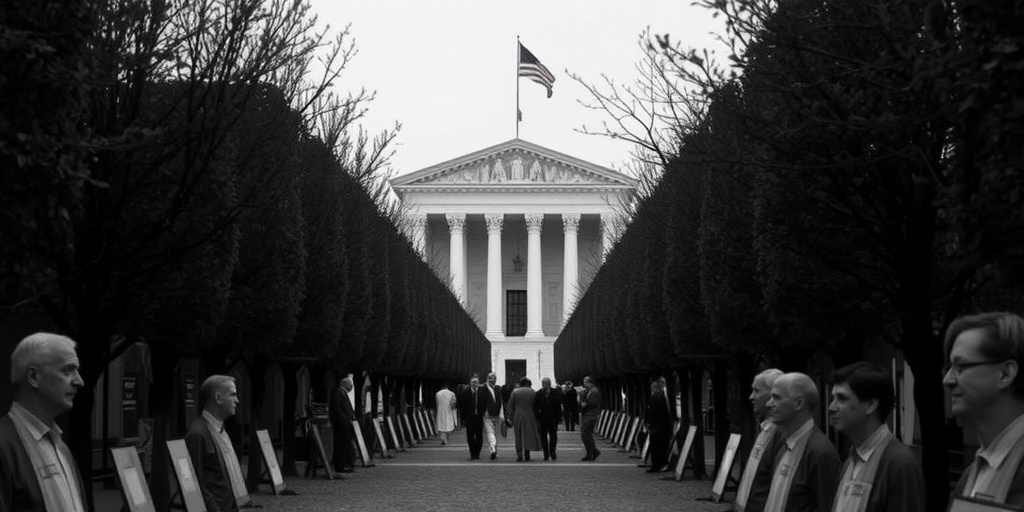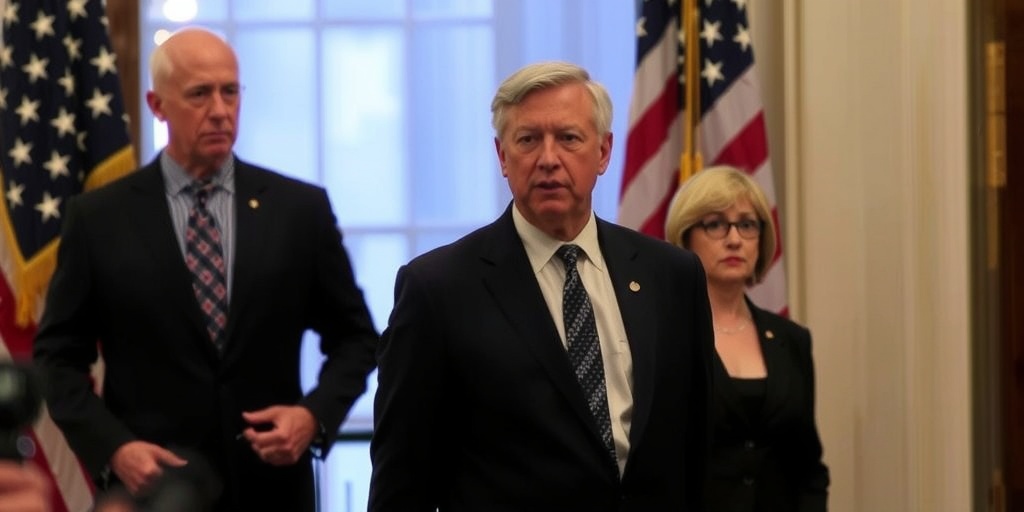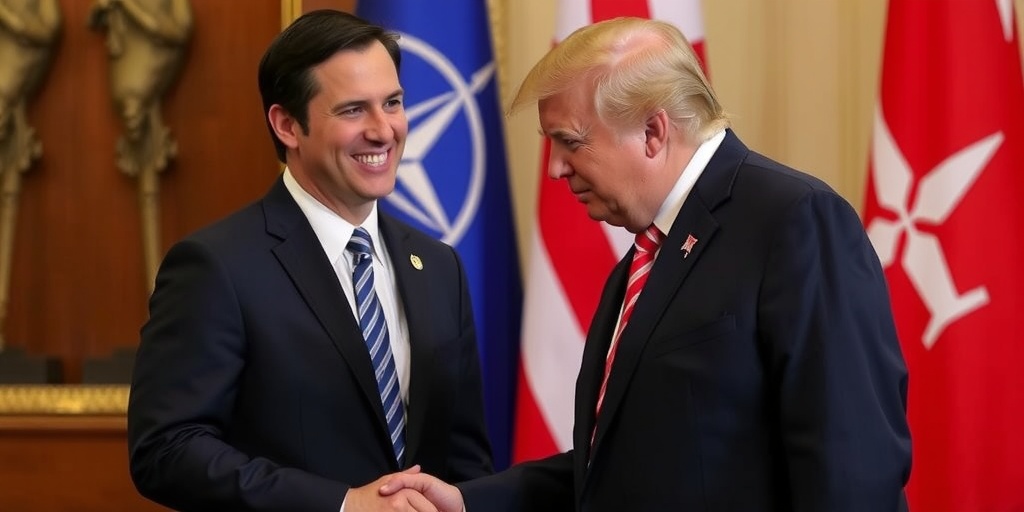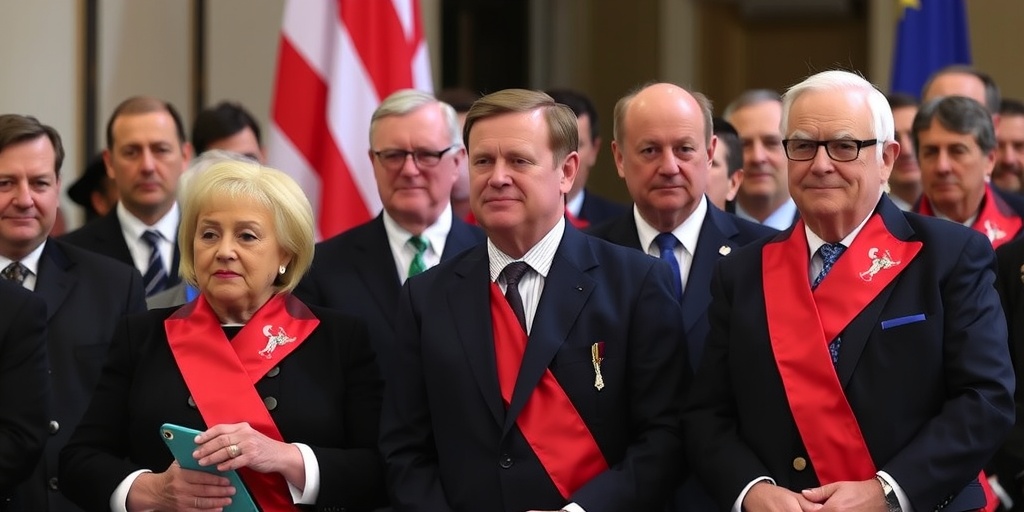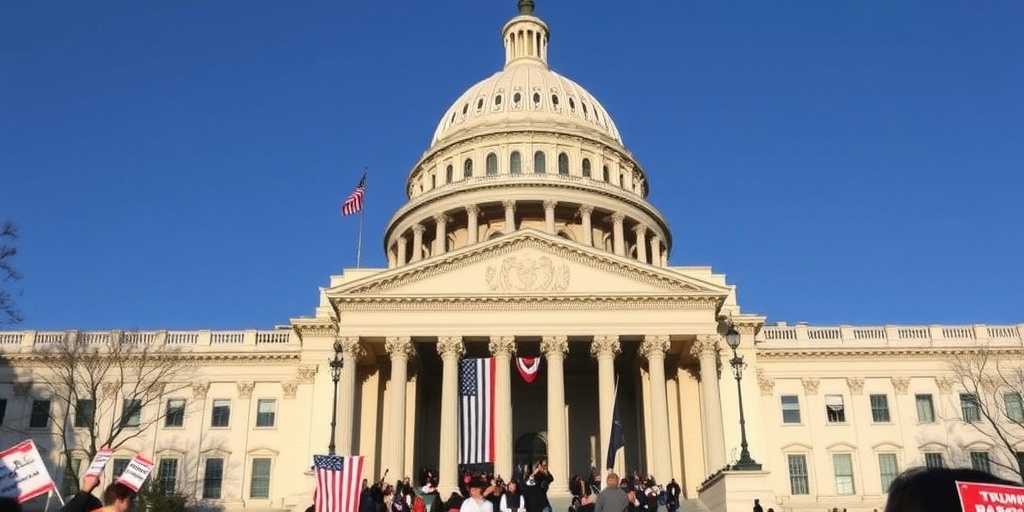Now Reading: European Right Leaders Unite for Inauguration
-
01
European Right Leaders Unite for Inauguration
European Right Leaders Unite for Inauguration
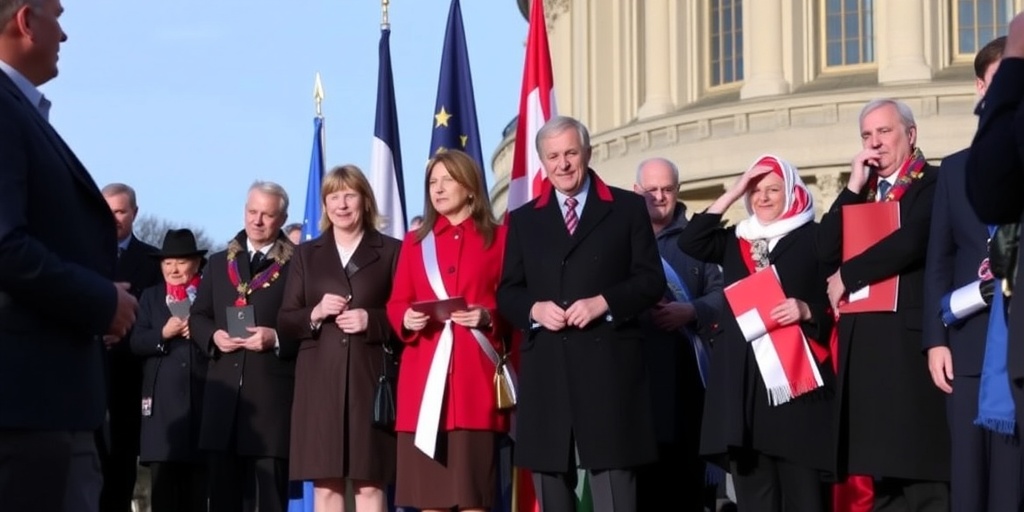
Title: European Politicians Gear Up for Trump’s Inauguration, Sparking Controversy
As preparations ramp up for President-elect Donald J. Trump’s inauguration, a notable contingent of European political figures has confirmed their attendance. Among them are mainstream conservative leaders and rising stars from the right-wing fringes of their respective countries, reflecting the shifting dynamics of European politics in alignment with Trump’s controversial policies, particularly his staunch anti-immigrant stance.
One of the most prominent attendees will be Italy’s Prime Minister Giorgia Meloni, known for her conservative views and a strong anti-immigrant outlook. Meloni, who took office amid a wave of nationalism, aims to curb the influx of migrants into Italy and has quickly positioned herself as a key ally of Trump in Europe. Her decision to visit Trump soon after his election showcases the budding relationship between the Italian government and the incoming administration.
The attendance of Meloni underscores the resonance of Trump’s ideology within certain segments of Europe. Many politicians from the European right share Trump’s sentiments on immigration, hoping to draw inspiration and support from his administration. For Meloni’s supporters, her appearances at Trump’s events symbolize a potential realignment of eurosceptic and nationalist forces across the continent, creating a unified front against immigration policies favored by the European Union.
Contrastingly, the absence of Hungary’s Prime Minister Viktor Orban, a fervent admirer of Trump and a stalwart of conservative politics in Europe, raises eyebrows. According to Zoltan Kovacs, Hungary’s secretary of state for international communications, Orban was not invited to the inauguration, a statement that contradicts the growing trend of foreign leaders attending such events. Trump has notably invited various foreign dignitaries in the past, signaling a departure from traditional inauguration protocols.
The names on the guest list do not end with Meloni and Orban. France’s Éric Zemmour, a polarizing figure convicted of inciting racial hatred, has confirmed his attendance. Known for his far-right views, Zemmour’s political platform hinges on the belief that France’s identity is threatened by Muslim immigrants. With a mere 7% of the vote in the 2022 presidential election, Zemmour’s presence at the inauguration further illustrates the melding of fringe politics and mainstream perception as he uses Trump as a rallying figure for his ongoing crusade against immigration.
Interestingly, while Zemmour will be present, Marine Le Pen, the leader of the more established National Rally party in France, will not attend. The National Rally, which has benefited from Trump’s anti-immigrant policies, finds itself in a complex position. Although they align with Trump’s messaging, their leadership is wary of the potential fallout from being too closely associated with the sometimes chaotic political style Trump embodies. Jordan Bardella, the current president of the party, has voiced skepticism toward the trend of political leaders seeking photo opportunities with the controversial American president.
In Germany, the delegation attending the inauguration will include Jürgen Hardt from the mainstream CDU/CSU party, as well as Tino Chrupalla, co-leader of the right-wing Alternative for Germany (AfD). The AfD has been criticized and classified as right-extremist by German authorities, raising concerns about the normalization of extreme political ideologies in Western politics. Chrupalla’s attendance attests to the increasing visibility of far-right parties in European political discussions, an evolution that some attribute to Trump’s influence.
The British representatives are expected to include former Prime Minister Liz Truss and Nigel Farage, leader of the anti-immigrant Reform U.K. party. Farage, a long-time ally of Trump, supported the president during his previous campaigns and may use this opportunity to restore connections with influential figures, including Elon Musk, who has recently shown reluctance to endorse Farage due to a public spat.
With the diversity of attendance ranging from mainstream conservatives to far-right leaders, Trump’s inauguration stands as a focal point for the collaboration and intersection of American and European political ideologies. It illustrates the ongoing evolution of the political landscape across the Atlantic, where anti-immigrant sentiment and nationalist rhetoric are increasingly prominent, emboldened by the Trump presidency. As these leaders gather in Washington, the potential implications for future U.S.-European relations remain a topic of keen interest and concern within the global arena.
Stay Informed With the Latest & Most Important News
Previous Post
Next Post
-
 01New technology breakthrough has everyone talking right now
01New technology breakthrough has everyone talking right now -
 02Unbelievable life hack everyone needs to try today
02Unbelievable life hack everyone needs to try today -
 03Fascinating discovery found buried deep beneath the ocean
03Fascinating discovery found buried deep beneath the ocean -
 04Man invents genius device that solves everyday problems
04Man invents genius device that solves everyday problems -
 05Shocking discovery that changes what we know forever
05Shocking discovery that changes what we know forever -
 06Internet goes wild over celebrity’s unexpected fashion choice
06Internet goes wild over celebrity’s unexpected fashion choice -
 07Rare animal sighting stuns scientists and wildlife lovers
07Rare animal sighting stuns scientists and wildlife lovers













